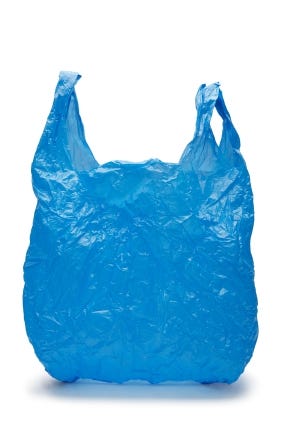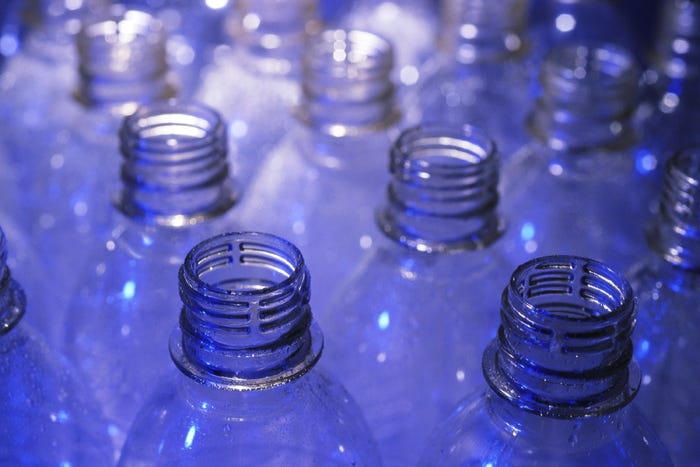Think plastic bag bans are only about bags? Think again.
More cities around the world are starting to put into practice some sort of plastic bag ban or tax. Type in 'plastic bag ban' in Google and you're likely to receive more than 2000 articles.In general, it's the same argument told in different ways and languages. Some view the polyethylene bags as an environmental eyesore that finds its way onto beaches, walkways, the side of highways, trees, etc. They believe a plastic bag ban or tax can help stop the proliferation of plastic bags.
September 17, 2012
More cities around the world are starting to put into practice some sort of plastic bag ban or tax. Type in 'plastic bag ban' in Google and you're likely to receive more than 2000 articles.
In general, it's the same argument told in different ways and languages. Some view the polyethylene bags as an environmental eyesore that finds its way onto beaches, walkways, the side of highways, trees, etc. They believe a plastic bag ban or tax can help stop the proliferation of plastic bags.
 About 100 billion to 1 trillion bags are used each year, according to the Environmental Protection Agency.
About 100 billion to 1 trillion bags are used each year, according to the Environmental Protection Agency.
On the other side, manufacturers of banned plastic bags fight back and talk about how bans will jeopardize manufacturing jobs, eliminate consumer choice, and more.
More than 30,000 American manufacturing jobs in 349 plants across the country are threatened by proposed ordinances to ban and tax plastic bags, according to the Society of the Plastics Industry (SPI).
Instead of bans, industry groups, such as the American Chemistry Council, believe education about the reusability and recycling of the bags can help solve litter issues. After all, the bags are 100% recyclable. Most plastic bags are recycled into composite lumber but can also be reprocessed into small pellets, or post consumer resin, which can become feed stock for a variety of products such as new bags, pallets, containers, crates, and pipe, according to the ACC.
Either way, plastic bags continue to make headlines. Take last week, I reported that Delhi passed a blanket ban on plastic bags and San Francisco got the go-ahead from a Superior Court judge to outlaw plastic bags in all retail and food locations in the city. The ruling came as a result of a lawsuit filed by the Save the Plastic Bag Coalition, which claimed that the city had banned plastic bags without conducting an environmental review.
The Save the Plastic Bag Coalition, an independent organization, has filed similar suits against the cities of Santa Cruz, Long Beach, Palo Alto and Oakland.
Save the Plastic Bag Coalition attorney Stephen Joseph told me that he hopes the lawsuits will get cities and counties and the public to "learn the truth about plastic bags and the alternatives, instead of relying on myths and misinformation."
Possible misconceptions?
While some see plastic bags as public enemy no. 1 when it comes to litter, others believe the bags are getting a bad rap.
The Save the Plastic Bag Coalition argues that paper bags are actually more harmful to the environment than plastic ones. The San Francisco Department of the Environment litter audit conducted before plastic bags were banned in that city showed that plastic retail bags were 0.6% of all litter, according to the coalition.
The coalition also takes issue with the term the 'Great Pacific Garbage Patch' that is used to refer to plastic trash floating in the Pacific Ocean.
On its website, the coalition cites an analysis by an Oregon State University scientist, which says claims that the trash patch is twice the size of Texas is grossly exaggerated.
That is aligned with what Tracey Read told me. She was recently onboard the Algalita/5Gyres Tsunami Debris Research expedition that investigated the Pacific Garbage Patch.
"There was no 'floating island' of trash as is often portrayed in the media," she said. "Instead there was a constant flow of plastics past the boat throughout the journey."
Beyond the bag
Throughout all this talk about plastic bags, the focus has been on that one segment of the plastics industry. Joseph warned it would be a mistake for the plastics industry to think this is only about bags.
warned it would be a mistake for the plastics industry to think this is only about bags.
"It isn't. It's about the stigmatization of all forms of plastic. The entire plastics industry needs to wake up, work as a unit, and fight like hell to prevent the reputation of plastics from being tarnished by misinformation. The entire plastics industry should be supporting our work," he said.
When you think about it, banning plastic bags serves as a statement.
Whether plastic bag bans are successful or fail, what's next on the horizon? Bottle bans? Styrofoam bans? Actually, those types of bans are already in the works. For example, more than 50 California communities have bans on expanded polystyrene takeout containers and Concord, MA became the first town in the nation to pass a bottled water ban.
It sounds like Joseph is right, banning plastic bags isn't just about the bag; it's about so much more.
About the Author(s)
You May Also Like


